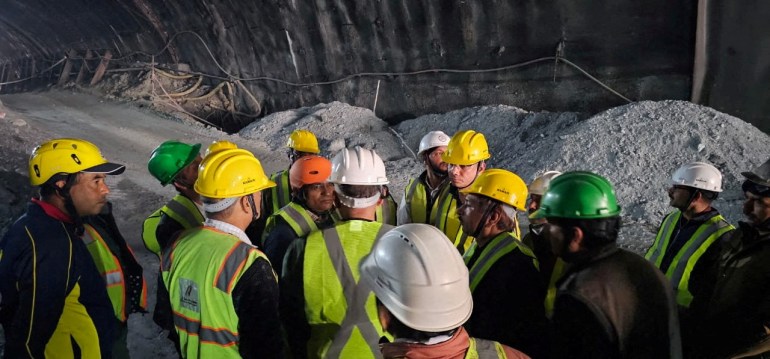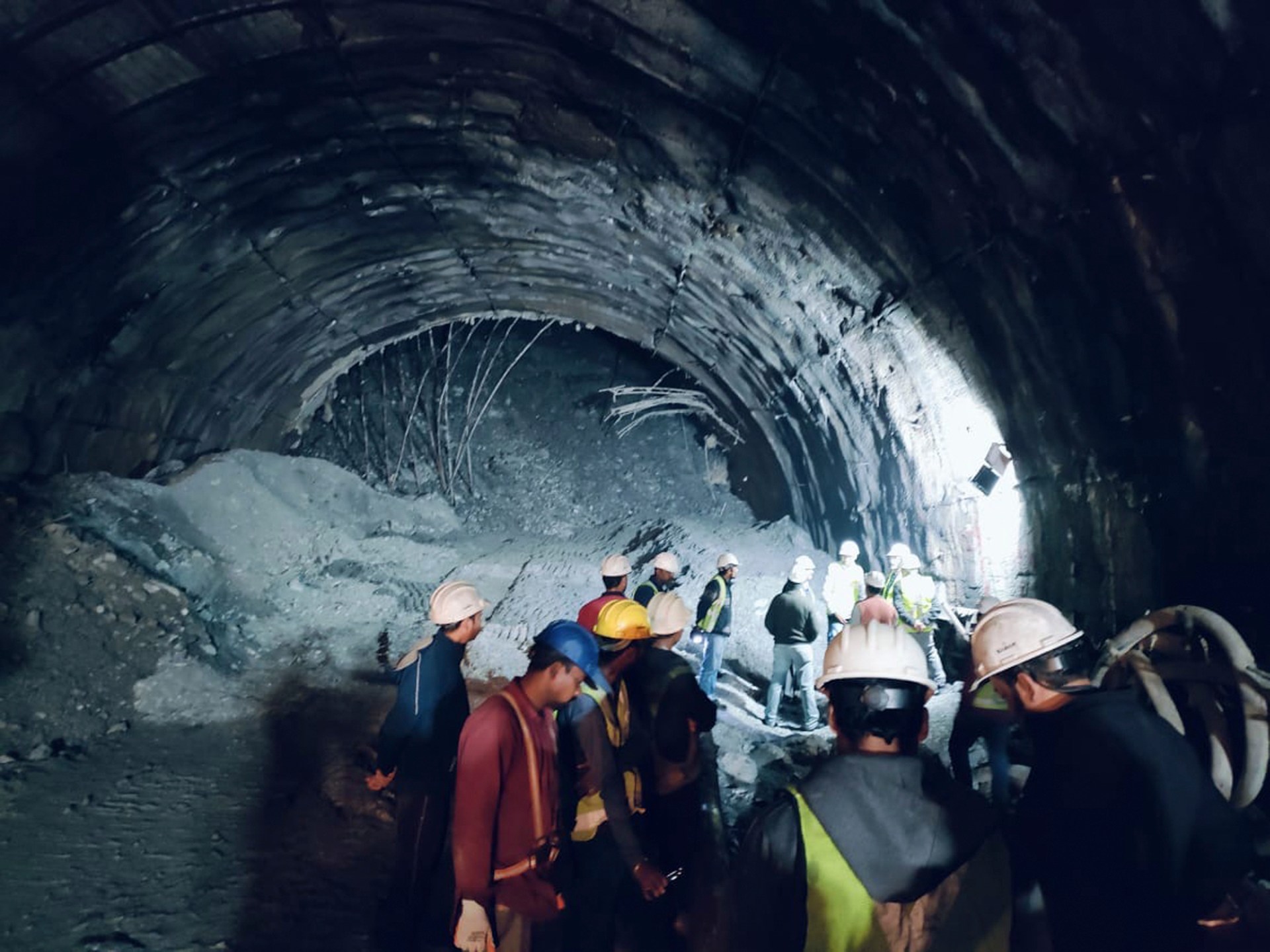Rescue ops enter third day at site of tunnel collapse in north Indian state
Heavy machinery has been brought in to pull out nearly 40 workers trapped inside the highway tunnel in the Himalayan state of Uttarakhand.
Excavators have begun drilling with heavy machinery to fix a wide steel pipe that will help pull out almost 40 Indian workers trapped inside a collapsed Himalayan highway tunnel that caved in two days ago in the north Indian state of Uttarakhand.
The 4.5km (2.7-mile) tunnel, which was being built on a national highway as part of a Hindu pilgrimage route, caved in at about 5:30am on Sunday (24:00 GMT on Saturday).
“We have been supplying food, water and oxygen to the trapped labourers and the officials are in continuous touch with all of them,” Devendra Singh Patwal, a disaster management official, said on Tuesday.
More than 100 rescue workers are using heavy machinery to drive a steel pipe with a width of 90cm (nearly three feet), wide enough for the trapped men to squeeze through the rubble, the government’s highway and infrastructure company said.

Patwal said it was not easy to ascertain the time required to pull out the workers. A team of geologists from the state government and educational institutions had arrived to determine the cause of the accident, he added.
“Our biggest breakthrough is that we have established contact and there is a supply of oxygen and food,” Uttarkashi district’s top civil servant Abhishek Ruhela told AFP news agency on Tuesday.
“Whatever is necessary for their survival is being done.”
Oxygen was being pumped into the tunnel and small food items like dry fruit were being provided to the workers, he added.
Photographs released by government rescue teams soon after the collapse showed huge piles of rubble blocking the wide tunnel, with twisted metal bars from its roof poking down in front of slabs of concrete.
The region is prone to landslides, earthquakes and floods and the incident follows events of land subsidence in the state that geologists, residents and officials have blamed on rapid construction in the mountains.
The work on the tunnel stretch commenced in 2018 and was initially intended to be completed by July 2022, which has now been delayed to May 2024, an Indian government statement said.
The Char Dham pilgrimage route is one of the most ambitious projects of Prime Minister Narendra Modi’s government. It aims to connect four important Hindu pilgrimage sites of north India through 889km (551 miles) of a two-lane road being built for $1.5bn.
But some work has been halted by local authorities after hundreds of houses were damaged by subsidence along the routes, including in ecologically fragile Uttarakhand.
Accidents on large infrastructure projects are common in India.
In 2021, at least 200 people, most of them construction workers, were killed after part of a Himalayan glacier broke away, causing flash floods in Uttarakhand in a disaster that experts partly blamed on excessive development.




